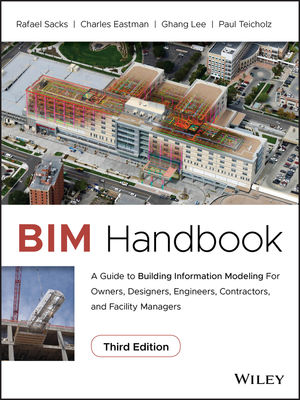ConnectivityWeek (www.connectivityweek.com), which started in Palm Springs in May of this year, has grown into several international forums/events which are creating global connectivity on several levels.
The first ConnectivityWeek in Europe was held in Amsterdam RAI on October 3-5. The first Asia-Pacific ConnectivityWeek will be held in Singapore Suntec on November 14-16, 2006. Plans have been made for the Middle East event for the week of February 25, 2007 and then back to North America, Chicago for May 22-24, 2007.
This collection of hosted international events will serve as the gathering place for the building/IT convergence industry and will result in global cross-pollination of the art of building connectivity. Anto Budiardjo is to be congratulated in taking his connectivity vision to the world. From an interview on this topic on AutomatedBuildings.com, I have extracted the following
Budiardjo: ConnectivityWeek is what we call the week of activities surrounding BuilConn. The reason for this is that some people are not drawn by the subject of buildings, but may be more by M2M or by the electric smart grid. All of the subjects are related to connectivity, so even if you are only interested in buildings there will be other subjects at ConnectivityWeek that will help you in buildings.
Sinclair: We know about BuilConn and M2M, what else is there in ConnectivityWeek?
Budiardjo: "Wi-tivity" focuses on wireless connectivity for controls and monitoring (ZigBee, GPRS, WiMAX, etc.), very relevant to buildings. The ibX Forum is about the value proposition and ROI for intelligent buildings, the business reasons for the technologies discussed at Buil-Conn. GridWise Expo is about electric energy and the smart grid; as you know much of building automation is related to energy management. Lastly, LonMark Connection is about how LonWorks plays in the world of converged buildings. They all tie together very nicely.
What else is happening at ConnectivityWeek?
From another interview on AutomatedBuildings.com with Gary Bark on "Selling Connected Buildings:"
Sinclair: Gary, a question I am always asking myself is, given the compelling reasons for intelligent buildings, why aren't more owners moving in this direction?
Bark: Good question Ken, I believe this is down to three fundamental problems: education, procurement, and the business case for doing it. Let's address them one by one.
Education - the whole supply chain from owners right through to the delivery partners, there is still of a lack of people who really "get-it". However, this is changing and events like BuilConn are helping to influence this.
Procurement - this is always challenging us, given that technology has moved on at a pace most can't keep up with, yet the way buildings are procured is really no different to the way it was done 20 years ago. Again, I personally have seen signs in the past 12 months that show this is changing, slowly, but it is changing and over time this will reduce the obstacles that stop real intelligent buildings from being implemented.
Business Case - This may sound somewhat obvious, but the business case needs to be developed right at the beginning of a project, not halfway through the construction phase. Most buildings don't work hard enough! A huge amount of money gets spent on them, and most end up as expensive sheds used simply for sheltering people and assets. We need to make buildings work harder, by which I mean they need to play an extensive and active part in meeting the corporate objectives to reduce costs, lower environmental impact, increase occupant productivity and maximize return on investment.
And what does Cisco's Rick Huijbregts have to say about connectivity?
Sinclair: What has happened since last May in Palm Springs?
Huijbregts: At Cisco, we have made some significant developmental strides when it comes to the growth and importance of connected real estate within our company. As the first connected buildings are online and have proven to be successful - combined with the ongoing validation from the real estate, building technologies, and IT industries - we continue to be encouraged and increasingly committed to the actions we are taking to play an important part in the transformation of the building and real estate industry.
Organizationally, we are growing expertise around the connected real estate offering. In Europe, our emerging markets theater, and AsiaPAC we have dedicated teams in place pursuing this incredible opportunity for building owners and operators, endusers, and all other stakeholders in the real estate world; of which we see ourselves increasingly part of.
What we bring to the table is clear: communication technologies to increase productivity and experiences of the endusers of all our physical environments, and the secure, wired, and wireless IP platform over which we can support, enable, and empower the systems and edge devices from our colleagues in the building automation world.
Related Articles
Related Products
See More ProductsSee More ProductsEvents
View AllSubmit An Event-
March 18, 2012 Global Engineering Conference
×
Get our new eMagazine delivered to your inbox every month.
Stay in the know on the latest HVACR engineering trends.
SUBSCRIBE TODAY!Copyright ©2024. All Rights Reserved BNP Media.
Design, CMS, Hosting & Web Development :: ePublishing



